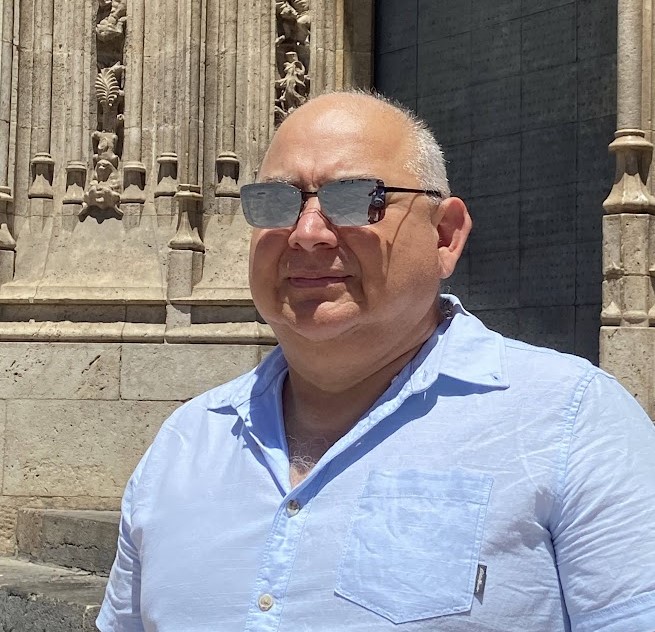Samuel Sotillo

he/his/him
Senior Lecturer
Department of World Languages and Cultures
Language and Computer Labs 206A
sfsotill@ncsu.eduBio
My name is Samuel F. Sotillo and I was born and raised in Venezuela. I worked as a network analyst and webmaster for many years before making the transition to teaching foreign languages and the Humanities. In 2011, I co-founded an academic press (A Contracorriente Press) and was responsible for its book production process until early 2020. Currently, in addition to teaching, I lead the study abroad program in Valencia, Spain each summer.
Projects
Responsibilities
Director of the Spain: Language and Culture in Valencia Summer Program
Former NCSU Faculty Senator
Co-founder, A Contracorriente Press
Website
Research Publications
Recent Papers in Spanish Literature:
- “Borges, Averroes y los malentendidos,” Prodavinci (11-12-2011).
- “A Note on a Review of Blood Meridian by Roberto Bolaño,” The Cormac McCarthy Journal 8.1 (2010).
Technical papers published by e-zine infosecwriters.com:
- Zfone: A New Approach for Securing VoIP Communication
- IPv6 Security Issues
- Extensible Authentication Protocol (EAP) Security Issues
Articles published by ZopeMag:
- Book Review: The Definitive Guide to Plone
- Product Review: Bastion Ledger
- Product Review: mxODBC
- Product Review: Formulator
- Product Review: ZStyleSheets
- Transactions by example: (Part II of II)
- Transactions by example: (Part I of II)
Articles published by IBM DeveloperWorks:
- Using DB2 and Zope to build a help desk application
Articles in Spanish
- Eric Hobsbawm (1917-2012). Prodavinci.com (Oct 2012) (Obituary on Historian Eric Hobsbawm’s death)
- Borges, Averroes y los malentendidos, Prodavinci.com (Jan 2011) (A review on Umberco Eco’s research on Jorge Luis Borges’ “The Search for Averroes”)
- Václav Havel y la sociedad civil, Venezuela analítica (June 2000) (Originally published by El Nacional, a Venezuelan newspaper)
Education
B.S. Information Security East Carolina University
M.A. Spanish Literature and Culture North Carolina State University
Area(s) of Expertise
My interests are second language teaching, the use of IT in teaching and learning, contemporary Venezuelan literature, the works of Jorge Luis Borges and Mario Vargas Llosas, medieval and early modern Spanish culture and literature, and the intersection of literature, politics, and digital technologies.